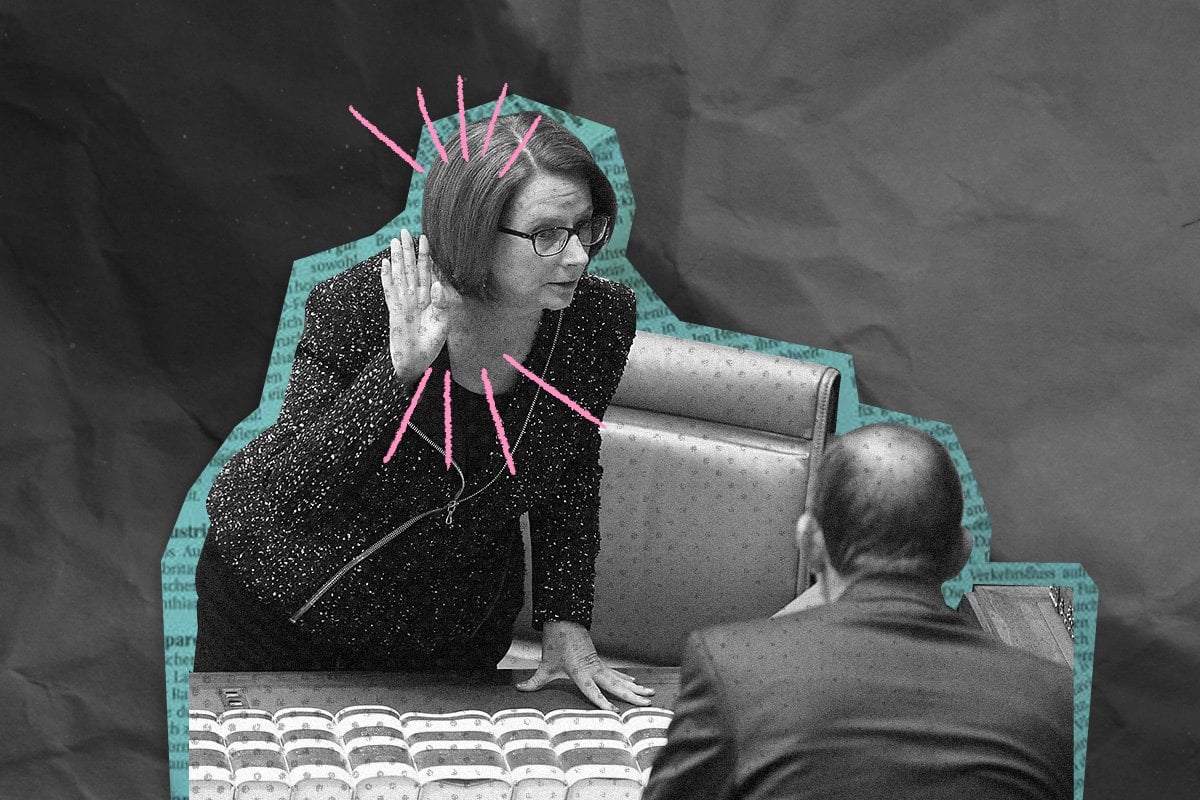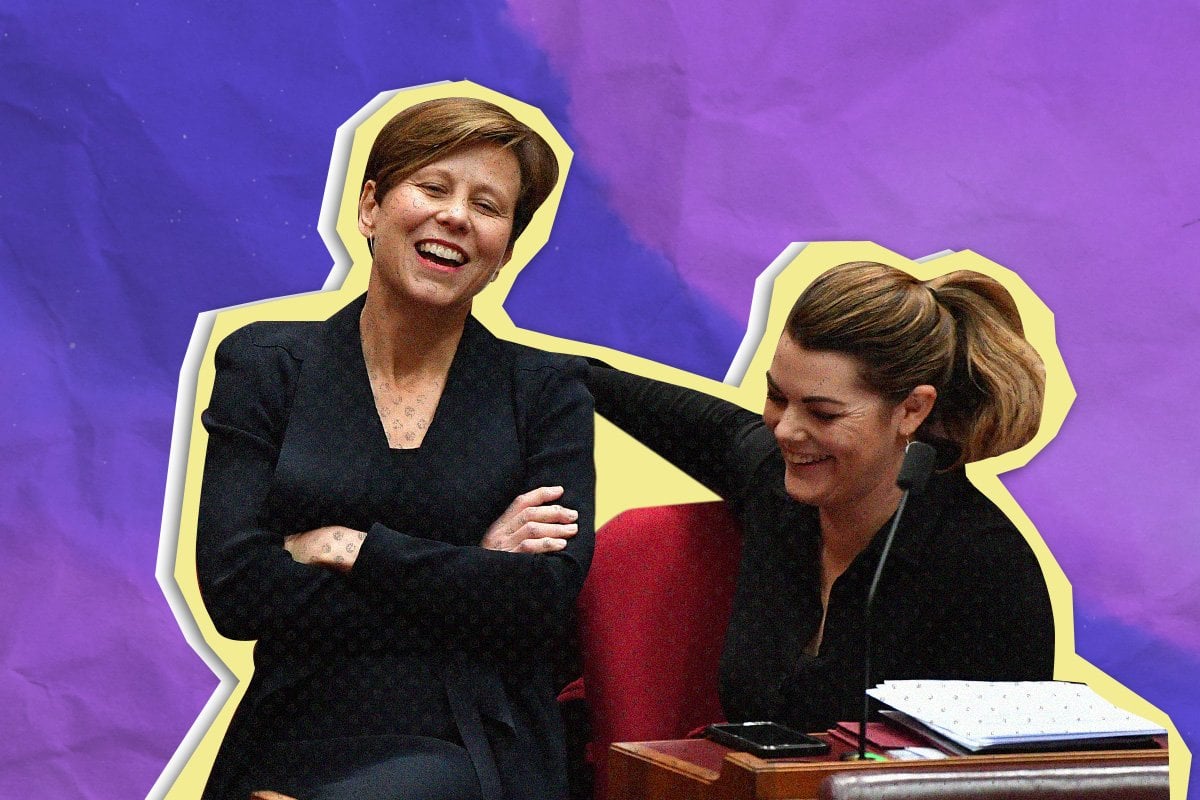
This International Women’s Day, Mamamia is creating the world we wished we lived in via our website and socials. That’s why today on Mamamia, you’ll see headlines we wish existed. But we cannot write these stories. Instead, the story will reveal the reality of what the world really looks like for women in 2022. You can read more about our pledge to #BreakTheBias this IWD here.
This is the headline we wish we could write on International Women's Day: Gender quotas scrapped as 50/50 gender representation reached in the Senate and the House of Reps for 50th consecutive year.



